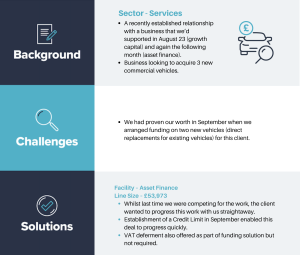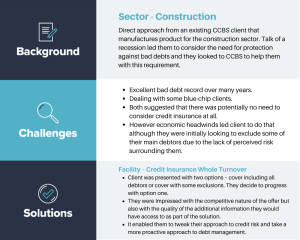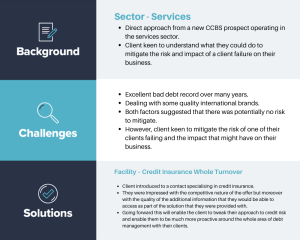 Liam Kane is the MD and owner of TAB and has over 30 years’ experience working with SMEs across the UK. He has been facilitating Peer Advisory Boards in the North East since 2021, and is a qualified Executive Coach passionate about supporting local business leaders. He tell us all about the benefits of having an alternative board in our latest blog…
Liam Kane is the MD and owner of TAB and has over 30 years’ experience working with SMEs across the UK. He has been facilitating Peer Advisory Boards in the North East since 2021, and is a qualified Executive Coach passionate about supporting local business leaders. He tell us all about the benefits of having an alternative board in our latest blog…
As a business owner do you ever feel like you have no one to talk to about the issues that you are facing in your business? I suspect the answer to that question may well be yes and in those circumstances what do you do?
Help and support may well be at hand via The Alternative Board. To give you some background, at The Alternative Board (TAB) we have cultivated a thriving community of forward-thinking business leaders who share collective wisdom and inspiration to radically improve performance in ways that change their lives.
For over 30 years, we have been helping leaders and their teams improve their business and change their lives. We do this in a couple of ways:
1. Peer Advisory Boards
As a business leader, all too often the big decisions fall to you and you alone, but it doesn’t have to be like that. Each month a small number of like-minded leaders meet to help one another make better and faster decisions.
But the boards are a lot more than that…
- They provide an environment to receive honest, supportive, and non-judgmental advice.
- You are surrounded by your peers who are on your side, emotionally invested in you, and want to help you succeed.
- You have dedicated time to work ‘on’ your business rather than ‘in’ it, giving you the opportunity to be strategic rather than tactical.
2. Business Coaching
Private one-to-one coaching sessions to give you renewed clarity, keep you accountable to achieve your goals and become an even more successful leader, allowing you to live the life you work for. Feedback from clients in the Northeast reinforces the value in working alongside a coach who’ll:
- Listen to you without judgement.
- Empathise with you.
- Challenge you using great questions.
- Support you without directing.
- Encourage you to think and reflect.
3. Gain Accountability, Expertise and Momentum
Joining TAB means joining other busy entrepreneurs committed to giving and receiving the candid guidance that can only come from peers following the same path. Tap into the power of like-minded leaders, leverage global membership insights, run your business more strategically and outpace your competitors. For more information, contact me, Liam Kane, on 07368 534427 or lkane@thealternativeboard.co.uk.


- The time to use a debt recovery solution is when your invoice is due for payment.
- So, whatever your payment terms are, if that’s 30 days, then a soon as 30 days has expired, consider using CC Recovery Solutions.
- This won’t be an aggressive chase and as it’s completed correctly this should work with you as an extension of your business in order to maintain client relationships.
Why do debt recovery services have a bad reputation?
- Debt recovery can be a taboo phrase but ultimately it shouldn’t be.
- Debt recovery is simply about recovering what you are due when you provided a service.
- CC Recovery Solutions can be used to recover invoices that are due on time maintaining good client relationships.
Who Are CC Recovery Solutions?
- CC Recovery Solutions are a sister business of CCBS Group.
- Formed in 2017 to offer clients help and assistance with debt recovery.
- Find out more – Commercial Debt Recovery and Receivables Management – CCBS Group
In what ways are CC Recovery Solutions different?
- It can be used as an extension of your credit control arm, or we can act in the placement of a credit control team if you don’t have one.
- This is done by highlighting to your customers that invoices are outstanding and in a lot of cases this will be enough with letters being sent out along with phone calls, texts, and emails.
- We have found we have a very high success rate in recovering balances owed which doesn’t need to be aggressive although we can certainly escalate that upon instructions from the client.
- See our latest successes here.
What steps do CC Recovery Solutions take to ensure business relationships are maintained?
- It’s about ensuring invoices are chased in a consistent and timely manner when they fall due and ensuring correspondence that we send out on your behalf is professional.
- Professionality goes into every approach that we take, and we don’t take steps without the client’s instruction in order to maintain comfortable client relationships.
How much experience does CC Recovery Solutions have in recovering debts for clients?
- CC Recovery Solutions have decades worth of experience, more importantly we have clients who trust us with their credit control and come back to us. As an extension of the credit control service, we also have experience in dispute resolution.
Once you decide to use CC Recovery Solutions, we handle everything. Contact us today to have an initial chat with our team.
Renewing a company vehicle or buying additional commercial vehicles can be a big burden on top of everything else you’re juggling day-to-day…
Things to consider…
- How much flexibility do you need?
- Do you have much of a deposit?
- Do you want to own the vehicle at the end of the finance term?
We can take that weight off your shoulders and source your vehicle/s and arrange finance tailored to your business, just tell us what you need or want, and we’ll source the vehicle and share the potential finance options with you.
We recently helped…

If we can help your business with vehicle finance or sourcing, please don’t hesitate to get in touch with our team using our form or email info@ccbsg.co.uk.
So Graeme, what is Invoice Finance?
Invoice Finance is a product used to help maintain cashflow, it provides advances of up to 90% of a company’s debtor book – what customers owe you essentially – which provides you with a long-term cashflow solution. And as we all know, cashflow is critical for all businesses, at all times!
What are the benefits of invoice finance?
There are a lot of benefits – so many that it’s even overtaken overdrafts as the working capital solution of choice for many businesses and funders. For example, the only limit to the funds you can access is the total of the invoices you exchange – not like strict caps on bank loan lending policies. That means the product grows as your business grows, meaning it can provide a long-term solution. It can also nurture business growth as you’ll have a steady flow of cash rather than waiting for invoices to be paid before the funds are available, or banks to make lengthy funding decisions – so you can continue to build your business without any delays.
What types of businesses can access invoice finance?
It can really be used by any sized company from SME through to enterprise-sized businesses and there are even specialist IF providers which can support niche companies or specialist industries. For example, some lenders offer construction or contractual sector-specific lends to support businesses in certain sectors or with complex business models or financing.
What else can Invoice Finance be useful for?
It can also be used to support CapEx, acquisitions or buy-outs, or event-drive finance too. So if you’re going through a change, and you have concerns about its impact on your working capital, invoice finance can be a good solution to explore.
Can you tell us about a recent invoice finance deal you’ve been involved with?
It’s not a one-size-fits-all landscape so it’s really critical that you understand what will be required to implement Invoice Finance, what the risks are, and which funder can best meet your needs. We recently supported a longstanding client who was expanding operations into Australia after two successful expansions in the US and Canada. We found a global funder who could support them with a £200,000 Invoice Finance solution that gave them the cashflow headroom to drive forward their plans.
How can business owners find out more?
If this strike a chord with you, definitely get in touch with us. We can find out about your specific situation and give you honest guidance as to whether IF is the right solution for you, or whether something else would be a better fit for your circumstances.

As you will know we are not corporate finance advisors, but we collaborated with Gateshead-based TIG Corporate Finance on the transaction which supported a Management Buy-Out of Washington-based NA College. Barry Gill, Managing Director at TIG, provided corporate finance advice to the vendor and CCBS sourced the funding through Shard Credit Partners, who facilitated the transaction. It involved a number of corporate partners working together and this collaborative approach is what led the judges to award it Deal of the Year.
Mr Gill said of the win: “It was an important deal for the region and one I am personally proud to be part of. Investment for the MBO was supported by Shard Credit Partners and led to a female-led board of directors taking control of NA College whilst the ownership of the company remained in the North East.”
Peter Cromarty of CCBS Group said: “It was a real pleasure to work on this deal with the management team, TIG Corporate and Shard Credit Partners to deliver a great deal all around. I look forward to seeing the business go from strength to strength.”
Business Protection is not something that we generally talk to clients about (and not products that we offer) but following a recent meeting the whole topic of Business Protection came into much finer focus.
Some food for thought…
Key Person Insurance
- There are often key individuals that make a big contribution to the success of a business.
- Losing one can have a serious impact on the financial health of the business.
- Key Person Insurance is designed to help protect your business against just such an eventuality.
- SME insights (SME State Of The Nation research conducted by Legal & General): –
- 70% of business owners believe that they would cease trading in less than 2 years with the loss of a key person.
- 59% think that they would cease trading within 12 months.
- 60% of businesses said that they had 3 or more key people.
Ask yourself – how many key people are in your organisation and how would the business be impacted if it lost a key person or worse still key people? Would this cause you an issue?
If the answer to that question is yes, then please click here for advice from our trusted partners.
Income Protection
- For many business owners becoming unwell or suffering an accident which prevents them from working is a significant threat.
- Fortunately, insurance products do exist to protect you from the risk of loss of income.
- You could receive up to £25,000 per month.
- Dividends can count as income.
Ask yourself – statutory sick pay is £99.95 per week for a maximum of 28 weeks. If you were unable to work, could you survive on that amount.
If the answer to that question is no, then please click here for advice from our trusted partners.
Business Loan Protection
- If a business owner dies or suffers terminal illness, lenders may have the right to demand that any outstanding loans are paid back.
- Business Loan Protection can provide peace of mind because it provides a lump sum to cover your business loans. This can include commercial loans / mortgages as well as director’s loans and personal guarantees.
- SME insights (SME State Of The Nation research conducted by Legal & General):-
- 80% of business owners have not taken out any insurance to ensure that directors loans could be repaid.
Ask yourself – have any individuals provided guarantees for business borrowing? If the answer to that question is yes, then please then please click here for advice from our trusted partners.
Private Medical Insurance
- Business health insurance or private medical insurance (PMI) is a policy that provides access to private health care for small business owners , their employees and families.
- SME insights (SME State Of The Nation research conducted by Legal & General):-
- 47% of UK employees see medical insurance as a key part of an employee benefits package
Ask yourself – Might health insurance improve the wellbeing of your team and reduce absences?
If the answer to that question is yes, then please click here for advice from our trusted partners.

Lenders that have secured loans against a business’ assets – such as through an all assets debenture – may be unwilling to release the security when the business seeks additional funding. This means that businesses may find it difficult to obtain additional financing or refinance existing facilities, potentially jeopardising their growth prospects and long-term sustainability.
As financial professionals and business owners, it’s essential to understand the security issues surrounding CBILS loans and the impact this has on businesses. While there’s no easy solution, exploring alternative financing options or negotiating with lenders could be a viable option for some businesses.
One potential step forward is the ability to transfer CBILS loans between financial institutions. While this is not currently possible, it’s something that could be considered in the future to help businesses access the finance they need while maintaining existing security arrangements.
In the industry, we must work together to find solutions that support the growth and success of our clients. This may involve exploring alternative financing options, negotiating with lenders, or advocating for changes to the CBILS scheme to enable loan transfers. By doing so, we can help businesses navigate these uncertain times and emerge stronger on the other side.
As we sail through the turbulent seas of the current economic climate, most businesses require one thing to keep them afloat; working capital. It’s that essential fuel that keeps the engine running smoothly and propels growth. However, acquiring the necessary working capital has become increasingly challenging in recent times.
At CCBS we understand the significance of working capital and the hurdles businesses face in sourcing it. With that in mind, we have highlighted several effective solutions that have proven to be invaluable in navigating the current economic landscape. Below outlines the working capital solutions that we find most useful in these uncertain times.
Invoice Finance: Unlocking Your Cash Flow Potential
Invoicing finance emerges as a flexible and reliable solution that helps businesses unlock the value of their outstanding invoices. We all know the pain of waiting for payments? Well, invoice finance provides a solution by allowing businesses to access a portion of their unpaid invoices in advance. By bridging the gap between invoice issuance and payment, businesses can ensure a steady flow of working capital, enabling them to meet operational requirements, invest in growth initiatives, and seize new opportunities.
Asset Refinancing: Turning Dormant Assets into Cash
Have you ever thought about those valuable assets sitting on the balance sheet? Think machinery, equipment, or even property. Asset refinancing offers a smart way to leverage these dormant treasures for much-needed funds. By using your assets as collateral, you can secure a loan that injects vital working capital into your business. Not only does this provide an immediate cash flow boost, but it also optimises asset utilisation and enhances operational efficiency.
Secured and Unsecured Business Loans: Flexibility at Your Fingertips
Secured and unsecured business loans remain steadfast options for businesses seeking working capital. Secured loans, backed by property, offer favorable terms and speed of delivery. They provide a reliable and cost-effective funding source. On the other hand, unsecured loans come in handy for businesses that may not possess substantial assets to secure financing against. These loans provide flexibility and speed, allowing businesses to quickly access the funds they need to address immediate working capital needs.
At CCBS we take pride in our expertise in the field. Our mission is to match businesses with the right funders for their particular needs, helping structure the ideal solution. With our extensive network of funders who understand diverse industries and unique requirements, we ensure that businesses receive customised and comprehensive working capital solutions. In these uncertain times, having the right working capital solutions is crucial for business survival and growth.
Reach out to our team and we’ll be more than happy to explore how we can assist you or your client in securing the working capital it deserves. Contact us >>

The mixed ability team have played together since they were 4 and 5 years old, but were left without a team or a coach when stronger players left for group teams. They continued to train and with the support of parent coaches, their resilience and enthusiasm paid off and they gained a league place in the RF U8s Division 9 for last season. The boys have never lost their enthusiasm despite mixed results – including a 16-nil defeat – and they are continuing to develop and enjoying every session – which has led to a recent mini league game win (16-nil!).
Their nominator said: “The group is made up of mixed backgrounds and mixed abilities, but they have really bonded as a group and are looking forward to moving up to 7-a-side/U9s for this coming season. This funding will go a long way to get new strips and training gear as the boys have grown a lot since this time last year. Thank you so much CCBS Group.”
We will be supporting them with a financial donation towards their team needs this coming season.
In addition to this, the second prize went to Gosforth Rugby Club. Not only will we be sponsoring their beer festival but have agreed that some of the funds will be made available to the Gosforth RFC Under 10’s who submitted a very compelling application indeed.
Finally, we have agreed the match day sponsorship of Birtley Town FC and will be bringing a contingent from our business network to enjoy the game with us.
Well done Harton & Westoe Under 8s Yellows and Gosforth RFC U10’s! We’ll be cheering you on in your new kits later this year.
Given recent headlines around business failures and the messages coming out of the funding market of a move onto a recession footing, discussions have turned to solutions to manage risks.
In today’s competitive business landscape, managing credit risk is crucial for the financial health and stability of companies. One effective strategy to mitigate credit risk is by securing bad debt insurance. This article explores the concept of credit risk, the importance of bad debt insurance, and the processing businesses can undertake to safeguard their financial interests.
Understanding Credit Risk
Credit risk refers to the potential loss a business may incur due to non-payment or delayed payment by its customers. It arises from extending credit to customers who may default on their payment obligations. For businesses, managing credit risk is vital to maintain cash flow, minimize financial losses, and ensure sustained operations.
The Importance of Bad Debt Insurance
Bad debt insurance, also known as trade credit insurance or accounts receivable insurance, provides protection against non-payment by customers due to insolvency, bankruptcy, or other defined events. It acts as a safeguard, allowing businesses to recover outstanding debts and mitigate the negative impact of customer default. Here are key benefits of bad debt insurance:
- Enhanced Cash Flow: Bad debt insurance provides a safety net by reimbursing a percentage of the unpaid amount, thus improving cash flow and minimizing the impact on working capital.
- Risk Diversification: By transferring credit risk to an insurance provider, businesses can diversify their risk exposure and protect against potential losses from customer defaults.
- Confidence in Customer Relationships: Having bad debt insurance coverage enables businesses to offer more flexible credit terms to customers, fostering stronger relationships and increasing sales opportunities.
- Improved Financing Opportunities: Lenders often consider bad debt insurance as a positive factor when assessing the creditworthiness of a business. Having coverage can enhance the chances of securing favorable financing terms.
To effectively manage credit risk and leverage bad debt insurance, processing businesses should undertake the following steps:
- Customer Due Diligence: Conduct thorough credit assessments before extending credit to customers. Consider factors such as credit history, financial stability, payment track record, and industry reputation. This helps identify potential credit risks and determine appropriate credit limits.
- Credit Terms and Policies: Establish clear and well-defined credit terms and policies. Communicate them to customers and ensure they understand their obligations. Specify payment terms, credit limits, and consequences for late or non-payment.
- Regular Monitoring and Evaluation: Continuously monitor customer payment behavior and promptly address any red flags. Establish an effective accounts receivable management system to track payments, send reminders, and escalate collection efforts when necessary.
- Credit Insurance Evaluation: Assess different bad debt insurance options available in the market. Compare coverage terms, exclusions, and premium costs. Work with an experienced insurance broker who can guide you through the selection process and recommend appropriate coverage for your business.
- Claims Management: Familiarise yourself with the claims process of your bad debt insurance provider. Understand the documentation requirements, claim submission procedures, and timelines. Promptly submit claims for eligible unpaid invoices to maximise recovery
- Ongoing Review: Regularly review and update your credit risk management and bad debt insurance strategies. Reassess credit limits, terms, and insurance coverage as your business grows or market conditions change. Stay informed about the creditworthiness of your customers and adjust your risk mitigation efforts accordingly.
Managing credit risk is vital for the financial stability and growth of processing businesses. By implementing effective credit risk management practices and securing bad debt insurance coverage, businesses can protect their cash flow, enhance customer relationships, and minimize losses arising from customer defaults. Conducting thorough due diligence, establishing clear credit policies, and working with reputable insurance providers are key steps to safeguard your business against credit risks.
Recent credit insurance deals we’ve completed:


See latest deals.
If this sounds like something your business would benefit from, contact us today for a no-oligation chat at info@ccbsg.co.uk or use our contact form.

 Liam Kane is the MD and owner of
Liam Kane is the MD and owner of 